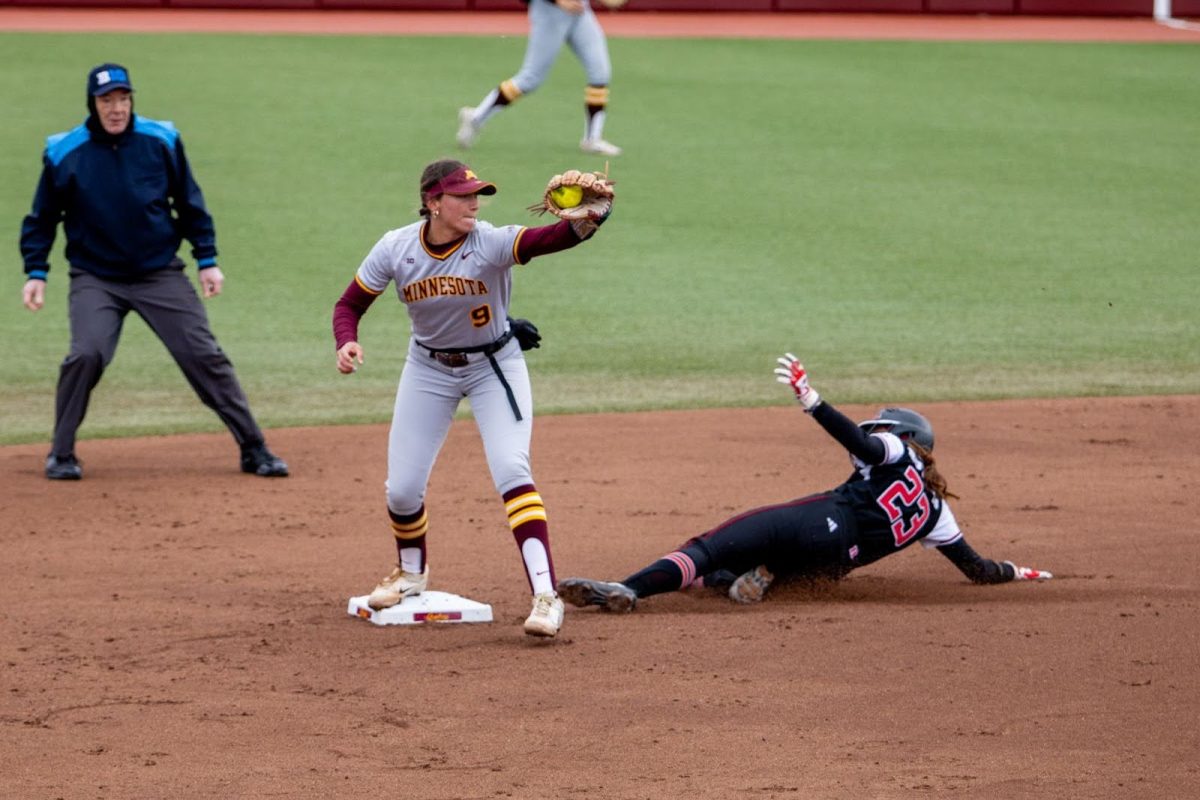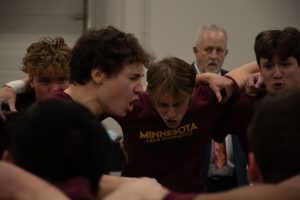TBy Libby George and Emily Johns
 he House Higher Education Finance Committee did not forget University students when it passed its omnibus budget bill Wednesday afternoon.
he House Higher Education Finance Committee did not forget University students when it passed its omnibus budget bill Wednesday afternoon.
Unfortunately, it was not with ideal student behavior fresh in their minds.
“I don’t think this is the kind of behavior taxpayers need to support in Minnesota,” said Rep. Carla Nelson, R-Rochester.
Nelson successfully introduced an amendment that would not only take away state grant money from students convicted of rioting but would also force students to pay the highest tuition rate possible – including out-of-state tuition.
The bill – if it makes it through conference committee and is signed by the governor – will apply only to future rioters, not any convicted from last weekend’s melee.
Committee Chairman Doug Stang, R-Cold Spring, said the provision is necessary to deter future riots.
“I think students will pay more attention now,” Stang said. “The first time this happened, we thought it was a one-time thing and didn’t act.”
Party debate
With the House committee’s approval of the higher education bill, the House as a whole must approve the bill, then the House, Senate and governor must now reconcile differences in their higher education plans.
The House bill – although providing $50 million more to higher education than the governor’s recommendation – still falls $50 million short of the Senate plan and closely follows many of the governor’s provisions, such as upping state grant program funding.
“(The Senate) invested the money in the systems,” Stang said. “We try to cushion the blow to the lowest-income students.”
House committee member Ron Latz, DFL-St. Louis Park, said the bill was far too partisan.
“There are two very different caucuses here,” Latz said. “Only time will tell what will be the result of that.”
The House and Senate, however, are both committed to protecting work-study and child care grants, which were made unavailable last year after shortfalls in the state grant program led the Higher Education Services Office to move most of that money to cover the deficit.
Both plans include a provision restricting the Higher Education Services Office from transferring from those programs to cover future grant program deficiencies. Both the Senate and the House also recommended nearly $25 million for state work-study programs and $9.5 million for child care grants.
The governor, House and Senate all recommend a $1 per pack cigarette tax increase to fund the Academic Health Center.
Both also include a provision requiring schools to send information about meningococcal meningitis to all first-year students.
Although a controversial section requiring students to sign a waiver and return it to the school has been removed from the Senate plan, the bill would strive to educate first-year students about meningitis risks – hopefully encouraging them to get vaccinated, said bill author Sen. Claire Robling, R-Jordan.
Citing Kristin Marx – the University student who recently died from the disease – Robling said the information could save students’ lives.
“(The death) gave it a little urgency. People realize how important it is to get information to students,” she said.
Controversial riders
Despite several similarities, the House bill has significant changes to the University – including the riot provision – that are absent from the Senate plan.
Riders on the bill would change the fees process to a positive check-off system, put two students on the Regents Candidate Advisory Council and make the higher education office a Cabinet office.
“It’s something that’s been approved time and time again,” said Andy Pomroy, chairman of the Minnesota Student Association’s Legislative Affairs Committee, of the positive check-off system. “It’s really an issue that I don’t believe the Legislature should get involved with – how students tax themselves.”
He added he hopes the Senate will cut it in conference committee.
Pomroy initiated the drive to put students on the Regents Candidate Advisory Council when he gave the idea to a legislator on Lobby Day.
Finally, House members hope to turn the higher education office into the Office of Higher Education – with the director appointed by the governor.
“This is in line with the governor’s recommendations for the office of higher education,” Stang said. He added that it will improve communication and accountability.
The provision raised concerns at the higher education office about the organization’s ability to truly advocate for students.
“I think it would be a serious mistake,” Higher Education Services Office communications member Phil Lewenstein said. “There would be no statewide advocate for need-based financial aid.”
Senate differences
Although Senate Higher Education Budget Division Chairwoman Sandra Pappas, DFL-St. Paul, referred to her own bill as “not good enough,” it does include a provision forbidding credit card companies from advertising directly to undergraduate students on campus, which is not included in the House plan.
The University already has a policy prohibiting on-campus marketing, but the bill would keep the school from selling or giving student names and information to credit card companies.
The $2.7 billion spending package also provides cuts to almost every area of higher education, including the University.
“I deeply regret that I am bringing forward a committee bill that is recommending base cuts,” Pappas said.
However, she said, a balanced approach is necessary to maintain quality, accessibility and affordability in state education.
“I wish we had more money to put in the grant program,” Pappas said.
Pappas showed frustration during the meeting, which lasted less than half an hour. After no one offered testimony for or against the bill, the committee voted unanimously to pass it.
Budget regrets
For senators and DFL representatives, the plans shortchange higher education.
“It’s not good enough for our colleges and it’s not good enough for our students,” Pappas told The Associated Press. “I’d love to vote against it.”
DFL representatives were equally unhappy with their plan.
“Putting some money back into the state grant program is like putting a Band-Aid on a gaping wound,” Latz said. “We are doing dramatic damage to our higher education institutions.”
Pappas said she was also not optimistic about the results of a conference committee bill.
“We’re outnumbered; we don’t have the votes,” Pappas said. “All we could do (for higher education) is shut down state government.”
Libby George and Emily Johns cover politics and welcome comments at [email protected] and









